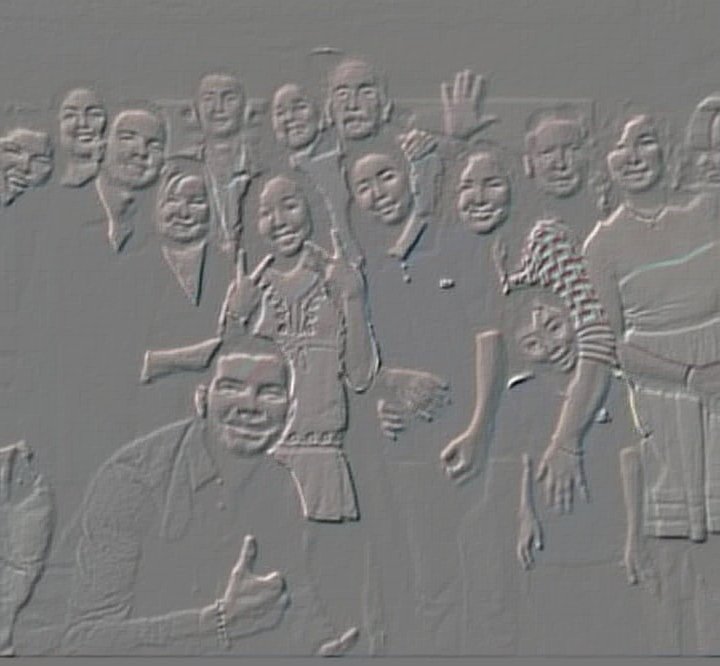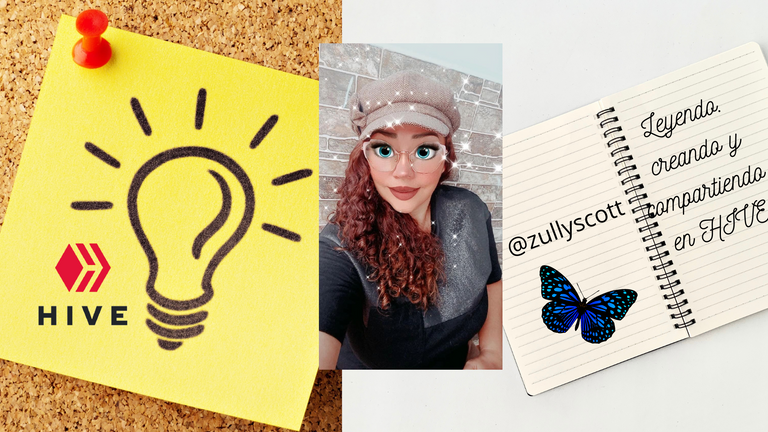(Esp/Eng) Iniciativa "Cultura Humana" Semana 2 /Sicología. " ¿Soy alguien sin los otros?

Imágen propiedad de la autora. (Editada con PicArts) Título "Familia"
Hola querida comunidad de Humanitas
Por aquí estoy participando de esta iniciativa semanal que busca hacernos reflexionar en diversas áreas y ciencias humanas, esta semana le tocó a la Sicológia, una de mis carreras soñadas. En fin, dejo por aquí el desarrollo de mis ideas en base la frase propuesta.
"El entorno da forma a las acciones del individuo" Skinner.
¿Podríamos existir sin los otros? Tal vez sí, pero,¿nos sentiríamos "alguien", "pertenecientes", sin que tuviésemos un entorno que nos mostrará de alguna forma lo que somos?.
Pienso que lo que soy está determinado a muchos factores, y sí el entorno es uno de ellos, ¿Qué es el entorno?, Pues todo lo que nos rodea, desde el ambiente físico hasta las personas que nos reciben y educan desde que nacemos.
Comencemos por destacar que el ambiente físico nos prepara para muchas cosas, no es igual un niño indígena Pemón (aquí hablo desde la observación y la experiencia), que nace en una aldea y aprende a contactar con la naturaleza, que desde que nace y va creciendo lo enseñan a cultivar la tierra, a cazar, o a saber moverse en un bosque, a un niño que nace en una ciudad, en un apartamento, que sólo baja al parquecito de su edificio y le traen la comida a la cama. Y no estoy hablando de Stratos sociales, estoy hablando de modos de vida, estos ambientes moldean las aptitudes y actitudes de ambos niños de formas distintas.
Pero esto no es una condición estática, ya que desde el momento en que nacemos nos vemos inmersos en varios entornos, quiere decir esto; que nuestro ser va acondicionandoce y readaptandose mientras vamos adquiriendo aprendizajes de lo que vivimos en esos entornos.
Definitivamente lo que más nos moldea es la cultura en la que nacemos, el ambiente puede crearnos aptitudes, pero la cultura nos va formando en actitudes y valores.
Nuestro concepto de la moral tiene mucho que ver con el entorno, para una mujer nacida en la tribu Masai en África tal vez esta bien la ablación (remoción del clítoris), para una mujer nacida en Holanda o algún país latinoamericano esto sería algo totalmente antinatural. Por eso las cosas que vemos cómo buenas o malas dependen mucho de las creencias que hemos adquirido en nuestra cultura local y en nuestra cultura familiar.
Ahora, como decía, esto es algo que puede variar y evolucionar, porque alguien que se hizo de una manera, por el entorno en que vivió, puede cambiar si es expuesto a un entorno distinto, ya que la adaptación es una de las características fundamentales de los seres humanos.
En mi caso, siento que soy lo que soy por la crianza recibida, por los lugares donde viví y por el contacto con las personas con las que he compartido en el trayecto de mi vida, y creo que aún sigo formándome, rehaciendome cada día. Sin embargo; hay valores fundamentales en mí que están arraigados y creo firmemente que fueron esos implantados en la niñéz.
Como maestra de preescolar creo fielmente que la edad temprana 0-6 años es donde se crean las bases del carácter del ser humano, si bien hay cosas que puedes aprender luego y también desaprender ( que cuesta más), estos años constituyen la etapa donde el ser humano filtra todo sin ningún tipo de juicio, osea, cree todo lo que le dicen y esto queda plasmado como una creencia en el subconsciente que luego será muy difícil erradicar.
Por eso es tan importante saber qué decirles y qué plantearles como creencias de vidas a los niños de estas edades, justo aquí es el momento donde el "entorno" influye más, ya que vamos absorbiendo de alguna manera, modos de vida de forma inconsciente, vamos aprendiendo a ser por imitación , o por necesidad; pero lo que si es seguro que es el momento en que somos más manebles y permeables por el entorno.
Cada quién sabe ya de adulto que tanto hizo el entorno en lo que es (o por lo menos eso intentamos algunos), ya luego uno puede tomar decisiones y empezar a deconstruir ciertas cosas que lo identificaban para entonces decidir qué influye y qué no en nosotros, pero es un trabajo que requiere mucha honestidad y mucha conciencia de sí mismo, sobre todo mucha auto observación y poder determinar si quieres desprenderte de esas creencias que fueron implantadas en la primera infancia o en situaciones que marcaron de forma profunda nuestra existencia.
Para concluir, creo firmemente que sí, que el entorno influye y forma las personas que somos, pero también creo que si estamos conscientes de ello cuando vamos avanzando en la vida podemos ir usando esto a nuestro favor y ser más capaces de decidir cómo y de que manera nos influirá en lo que somos y en consecuencia en nuestras acciones.

Invito a participar de esta iniciativa a @danielvehe y a @jkalthor
GRACIAS POR DEDICAR TIEMPO VALIOSO DE TU VIDA A LEERME
CON AMOR
ZULLY

ENGLISH

Image property of the author (Edited with PicArts) Title "Family".
Hello dear Humanitas community
Here I am participating in this weekly initiative that seeks to make us reflect on various areas and human sciences, this week it was the turn of Psychology, one of my dream careers. Anyway, I leave here the development of my ideas based on the proposed phrase.
The environment shapes the actions of the individual" Skinner.
Could we exist without others? Maybe yes, but would we feel "somebody", "belonging", without having an environment that will show us in some way what we are?
I think that what I am is determined by many factors, and yes, the environment is one of them. What is the environment? Well, everything that surrounds us, from the physical environment to the people who receive us and educate us since we are born.
Let us begin by emphasizing that the physical environment prepares us for many things, it is not the same for an indigenous Pemón child (here I speak from observation and experience), who is born in a village and learns to contact with nature, who from birth and growing up is taught to cultivate the land, to hunt, or to know how to move in a forest, to a child who is born in a city, in an apartment, who only goes down to the park of his building and they bring him food to bed. And I am not talking about social Stratos, I am talking about ways of life, these environments shape the aptitudes and attitudes of both children in different ways.
But this is not a static condition, since from the moment we are born we are immersed in various environments, this means that our being is conditioning and readapting as we acquire learning from what we live in those environments.
Definitely what shapes us the most is the culture in which we are born, the environment can create aptitudes, but culture shapes us in attitudes and values.
Our concept of morality has a lot to do with the environment, for a woman born in the Masai tribe in Africa perhaps it is okay to ablate (removal of the clitoris), for a woman born in Holland or a Latin American country this would be something totally unnatural. So the things we see as good or bad depend a lot on the beliefs we have acquired in our local culture and in our family culture.
Now, as I was saying, this is something that can vary and evolve, because someone who was made one way, by the environment in which he lived, can change if exposed to a different environment, since adaptation is one of the fundamental characteristics of human beings.
In my case, I feel that I am what I am because of the upbringing I received, the places where I lived and the contact with the people with whom I have shared in the course of my life, and I believe that I am still forming myself, remaking myself every day. However, there are fundamental values that are ingrained in me and I firmly believe that they were implanted in my childhood.
As a preschool teacher I faithfully believe that the early age 0-6 years is where the foundations of a human being's character are created, although there are things that you can learn later and also unlearn (which costs more), these years are the stage where the human being filters everything without any kind of judgment, that is, he believes everything he is told and this is captured as a belief in the subconscious that later will be very difficult to eradicate.
For that reason it is so important to know what to say to them and what to raise them as beliefs of lives to the children of these ages, just here it is the moment where the "environment" influences more, since we are absorbing somehow, ways of life of unconscious form, we are learning to be for imitation, or for necessity; but what if it is certain that it is the moment in which we are more manageable and permeable for the environment.
Everyone knows as an adult how much the environment made us what we are (or at least some of us try to), and then we can make decisions and begin to deconstruct certain things that identified us and then decide what influences and what does not influence us, but it is a job that requires a lot of honesty and self-awareness, especially a lot of self-observation and to determine if you want to get rid of those beliefs that were implanted in early childhood or in situations that marked our existence in a profound way.
To conclude, I firmly believe that yes, the environment influences and shapes the people we are, but I also believe that if we are aware of it as we move forward in life we can use it to our advantage and be more capable of deciding how and in what way it will influence who we are and consequently our actions.

I invite @danielvehe and @jkalthor to participate in this initiative.
THANK YOU FOR DEDICATING VALUABLE TIME OF YOUR LIFE TO READ ME.
WITH LOVE
ZULLY

Traducción realizada con la versión gratuita del traductor www.DeepL.com/Translator
Translated with www.DeepL.com/Translator (free version)
https://twitter.com/zullycscott/status/1528193651775610880
The rewards earned on this comment will go directly to the person sharing the post on Twitter as long as they are registered with @poshtoken. Sign up at https://hiveposh.com.
Hola @zullyscott gracias por aportar a #Humanitas y participar en la iniciativa.
Es muy importante ya que la cultura nos forma de alguna manera a ejecutar acciones de acuerdo a cierto "patrón", y muchas veces asimilamos o ponemos en marcha eso de manera inconsciente. Algunas culturas pueden tener diferentes modos de vivir, muchas veces dependiendo del ambiente donde viven, pero también creo que cada individuo tiene la capacidad de pensar por si mismo al menos en un grado muy mínimo, y salirse o desaprender algunos patrones. Un tema interesante.
¡Saludos!
Así es, al final siempre tenemos el poder de decidir, la cuestión es hasta qué punto ese poder de desición y "libre albedrío" está determinado por lo que hemos aprendido del entorno. Gracias por comentar.
Es un tema muy profundo, ya que lo que podríamos pensar que es nuestra "capacidad de salirnos del programa", es en realidad parte del mismo programa, quizás es algo también predeterminado, o quizás si tenemos un pequeño libre albedrío en la consciencia.
Saludos @zullyscott gracias por aportar!
Saludos, has expresado de una manera muy equilibrada la relación entre el entorno y la persona, así es, somos influidos por el mismo pero también tenemos la posibilidad de decidir.
!PIZZA
PIZZA Holders sent $PIZZA tips in this post's comments:
@jesusalejos(1/10) tipped @zullyscott (x1)
Join us in Discord!